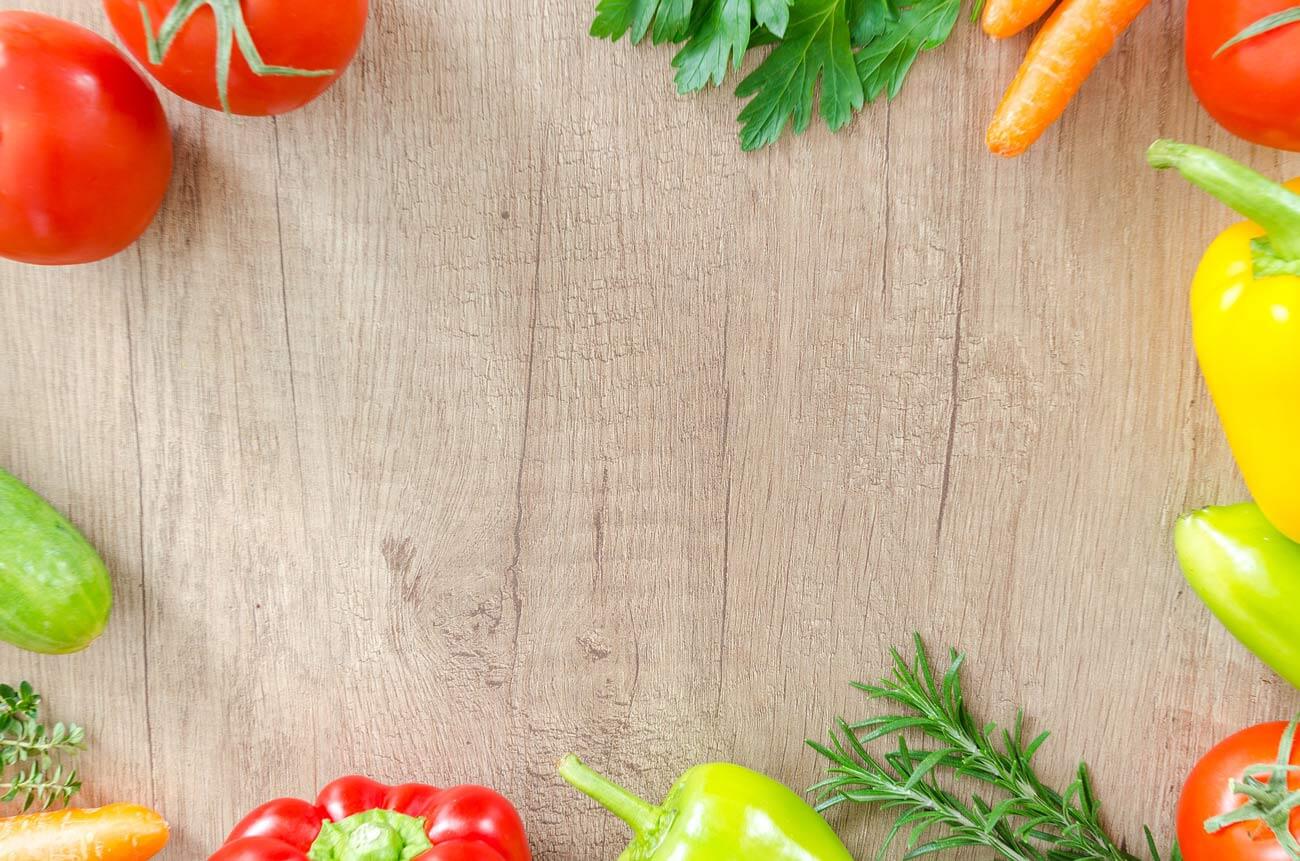Leonardo da Vinci and Animal Rights
Is there anything that Leonardo da Vinci didn’t anticipate?
His celebrated notebooks include diagrams for a human-like robot, a helicopter, a diving suit, a parachute, a ball bearing, and a self-propelled cart—history’s first robotic vehicle plan.
Da Vinci was also an urban planner. His “ideal city,” designed in response to the Black Plague, was laid out to be sanitary from the ground up. He hypothesized that something about cities made people vulnerable to disease—the “germ theory” was later proved in the 1860s by Louis Pasteur.
In addition to being a great artist, architect, botanist, engineer, mathematician, cartographer, geologist, and musician, this Renaissance man was also an animal advocate. That’s why PETA is marking the 500th anniversary of his death—which occurred on May 2, 1519—with a celebration honoring his memory as an animal rights pioneer.
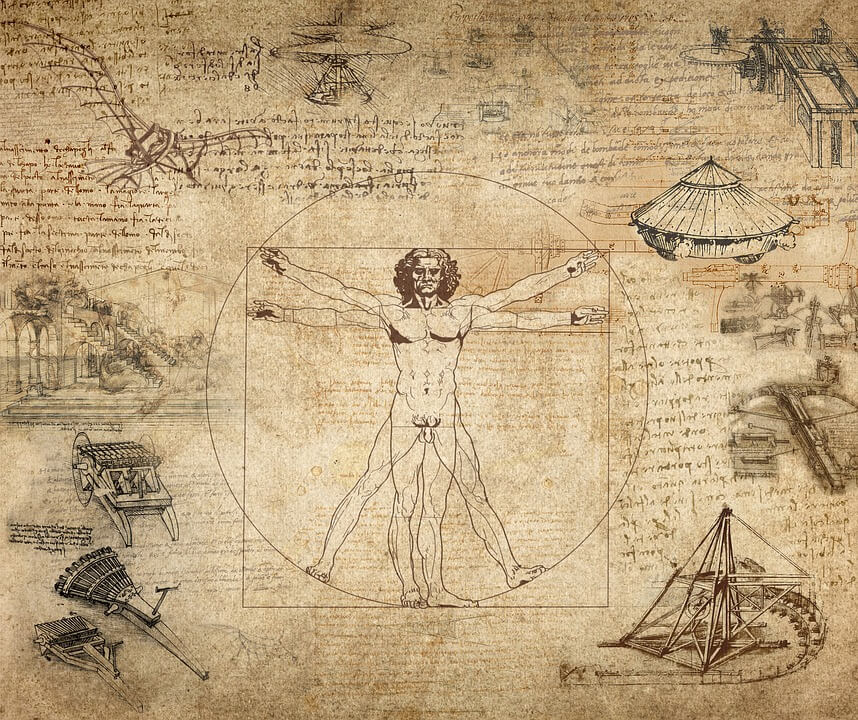
PETA has kicked off our international memorial campaign with a public unveiling of our new “Leonardo da Veggie — Eat Like a Genius” ad in Milan, Italy, a city where da Vinci spent much of his life and where many of his best-known creations can still be seen today.
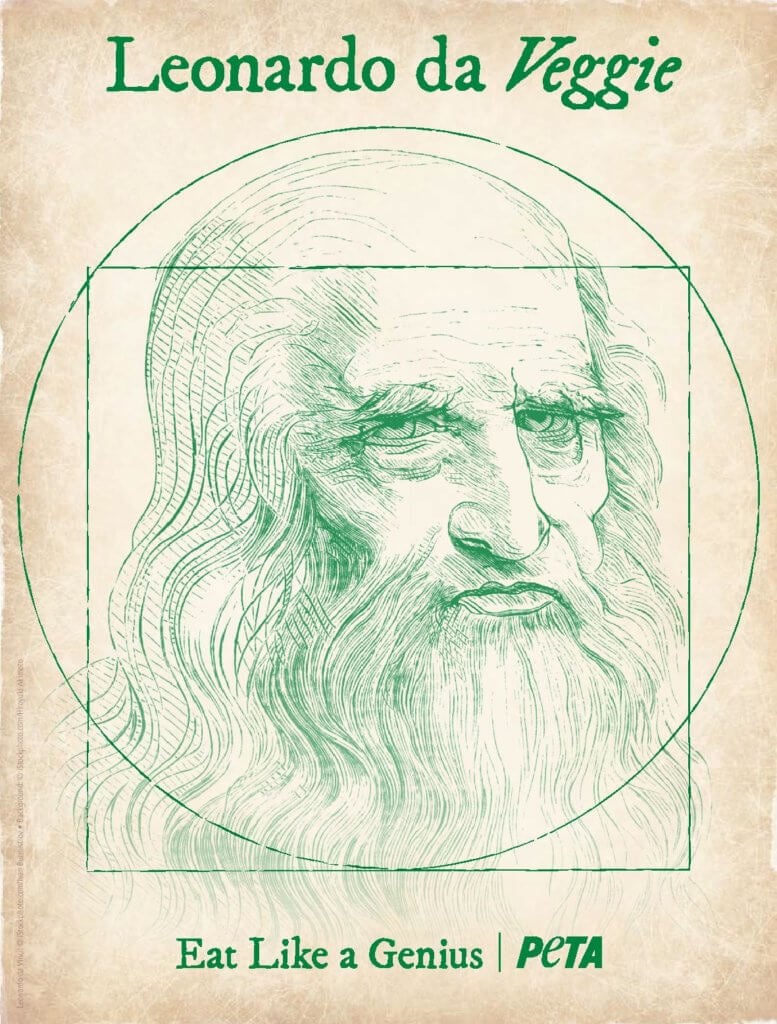
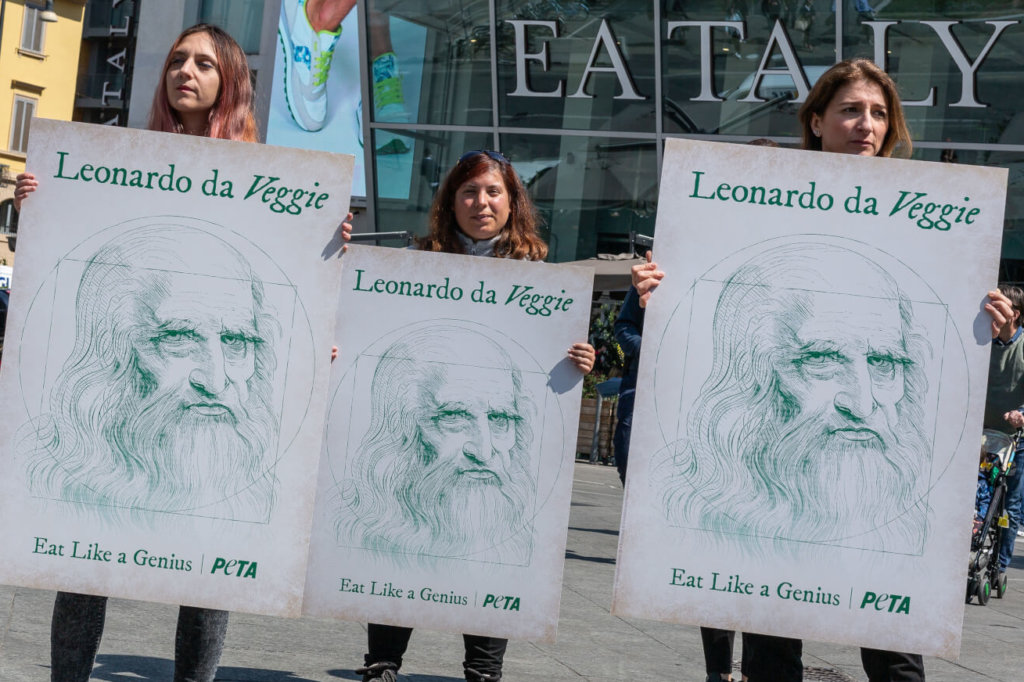
After all, his record speaks for itself.
There are accounts of da Vinci—who preferred to dress in linen so as not to wear “something dead”—buying caged birds only to release them, restoring their “lost liberty.”
He spoke out for fish: “How cruel for one whose natural habitat is water to be made to die in boiling water.” He lamented chicks who “will never come to birth” because humans steal hens’ eggs, and was clear about not eating meat: “[F]rom countless numbers will be taken away their little children and the throats of these shall be cut, and they shall be quartered most barbarously.” And it’s no surprise that he disputed the idea that humans were superior to other animals. “If you are, as you have described yourself, the king of the animals,” he asked, “why do you help other animals only so that they may be able to give you their young in order to gratify your palate?”
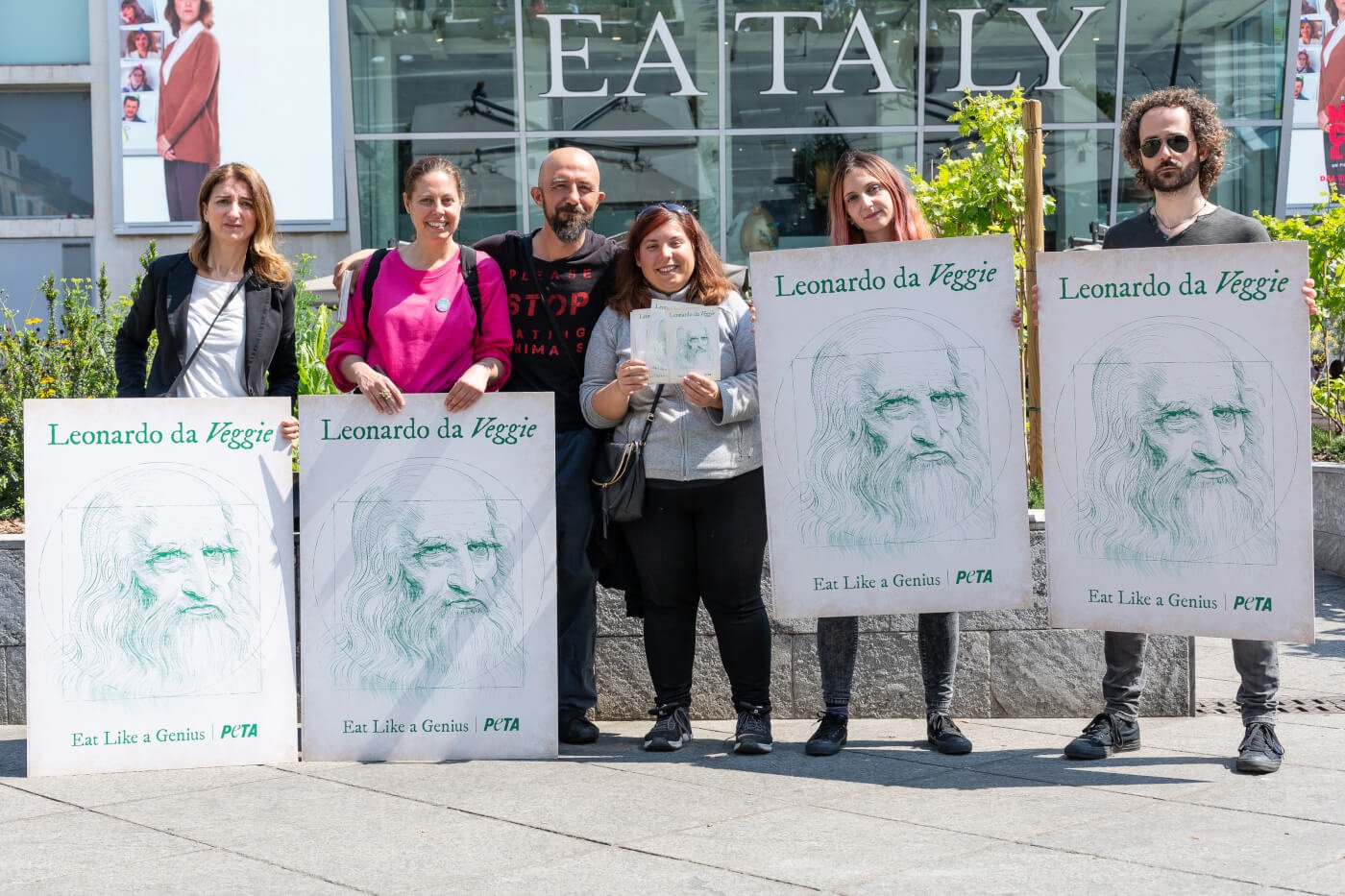
Ready to Start Celebrating?
The following recipe—adapted from Famous Vegetarians & Their Favorite Recipes: Lives & Lore From Buddha to the Beatles by Rynn Berry—was translated from De Honesta Voluptate (“For Honest Pleasure”), the cookbook published in 1475 used by da Vinci.
Fried Figs and Beans
Ingredients:
– 1 cup kidney beans, soaked overnight and cooked
– 1 cup sun-dried figs, chopped
– 1 medium onion, chopped
– Sage, to taste
– Garlic, to taste
– Assorted herbs (basil, thyme, rosemary), to taste
– Salt and pepper, to taste
– 2 Tbsp. parsley, finely chopped
Instructions:
– In a greased frying pan, add the cooked beans, figs, onion, sage, garlic, and assorted herbs and fry well.
– Season with salt and pepper and sprinkle with the chopped parsley.
Makes 4 servings
